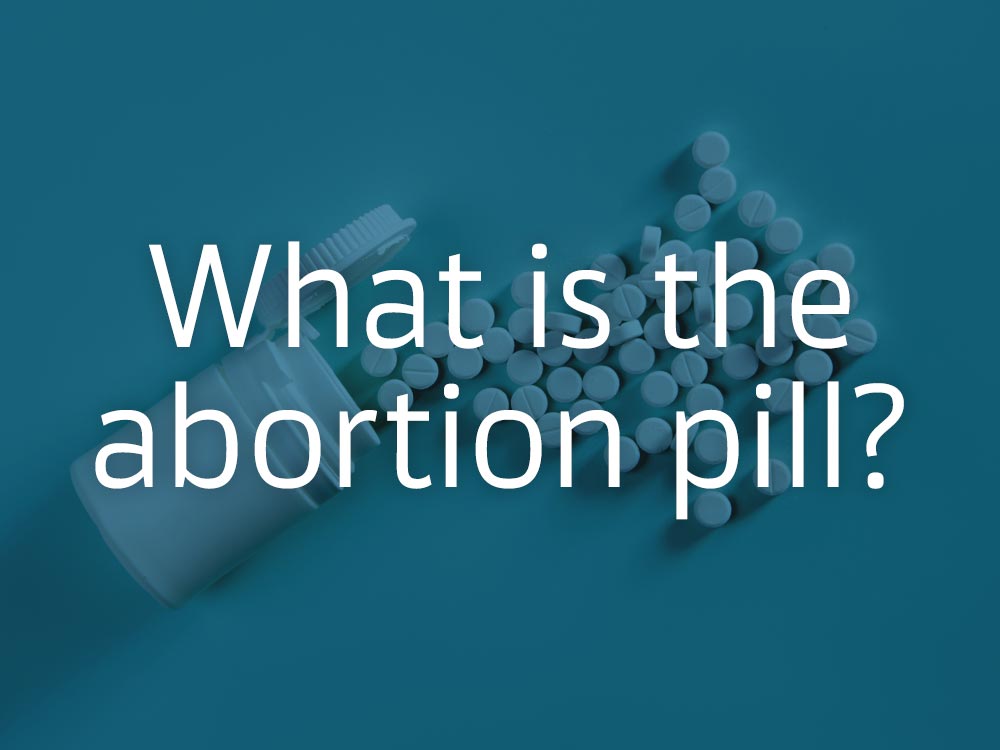Updated July 18, 2022
Sounds simple doesn’t it? Take a pill, and your unplanned pregnancy is gone. So, is it really that easy?
Medical (or sometimes known as chemical) abortions use medicine, rather than a surgical procedure, to end a pregnancy within the first 10 weeks of gestation. It is also known as the “abortion pill” or RU-486. It is not the morning-after pill. Currently more than 50% of all abortions in the United States occur this way.

The Abortion Pill: How it works
The abortion pill is a two-step process prescribed by a doctor within the first 7-10 weeks of pregnancy. The abortion pill should be given to patients only in certain healthcare settings, specifically clinics, medical offices, and hospitals by or under the supervision of a certified prescriber.
The first drug, mifepristone (Mifeprex) is given orally. This drug blocks the nutrient supply which helps sustain the pregnancy.
The second drug—misoprostol—is taken at home within 24-48 hours after the first medication. Misoprostol causes the uterus to contract to expel the contents of the uterus/pregnancy. This may occur within a few hours or a few days after taking misoprostol.
What are the risks and side effects of the abortion pill?
Cramping, nausea, vomiting, diarrhea, heavy bleeding, infection.
The primary side effect of Misoprostol is intense cramping and bleeding as the uterus empties its inner lining and expels the pregnancy.
The FDA has approved Mifepristone for use up to 70 days (10 weeks) from the last menstrual period (LMP). Be aware, using the medication in a way that is different from the approved regimen increases the risk of complications.
The procedure is sometimes unsuccessful, which means you would need a surgical abortion procedure to complete the abortion.
Use of the abortion pill is not advised for women who have anemia, bleeding disorders, liver or kidney disease, seizure disorder, acute inflammatory bowel disease, use an intrauterine device (IUD), or are unable to return for the follow-up visit.
A clinical examination or ultrasound should be performed about 14 days after you take mifepristone to confirm termination of pregnancy.
What should I do next?
- Gather all your information.
- Slow down and allow yourself time to make an informed decision.
- Choose to know all the information you need about all of your options. It’s your health.
Remember that we are here for YOU. No cost. No judgment—just honest answers and accurate information.
Contact us at 717.394.1561 (option 1) or send us a confidential message to schedule a confidential appointment with our skilled and compassionate medical team.
This information is presented as an informational tool only. It is not intended to replace medical advice or care from a qualified medical provider.






